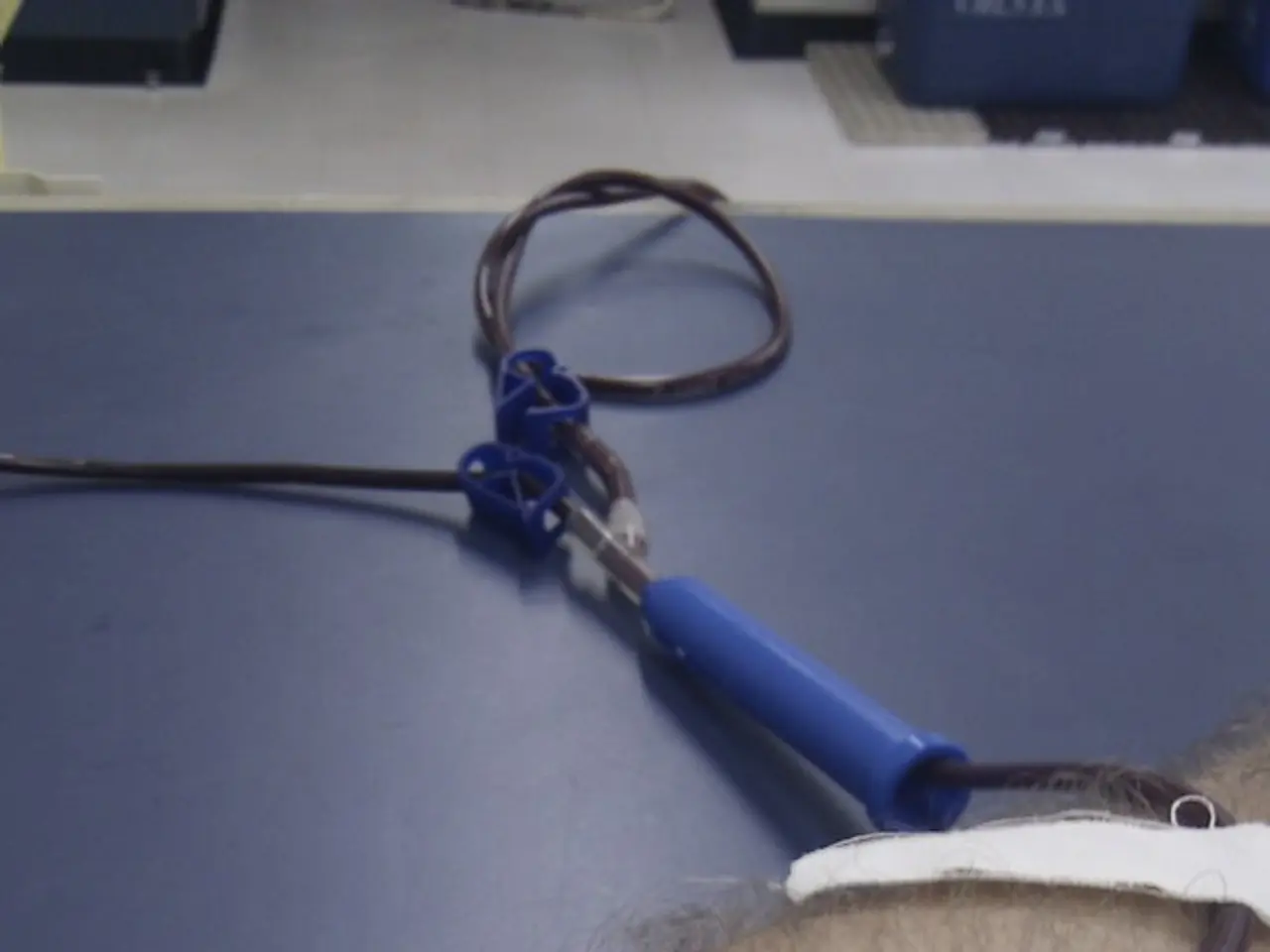Over 2,000 fatalities due to drug overdose within the past year
In recent years, Germany has witnessed a sharp increase in drug-related deaths, particularly those linked to synthetic opioids. This surge has raised concerns among health experts, with Professor Hendrik Streeck, the Federal Drug Commissioner in Berlin, describing the situation as a "quasi-pandemic dynamic."
According to Professor Streeck, there has been a 14 percent increase in deaths among young users under 30 years old. This increase is attributed to the opium ban imposed by the Taliban in Afghanistan, which led to the destruction of Afghan poppy fields and the subsequent rise of lab-made opioids. The exact synthetic opioids responsible for the increase in deaths have not been specified.
The impact of this crisis extends beyond individual lives, affecting healthcare systems, law enforcement, and social services. Last year, 2,137 people died from drug use in Germany, a figure that is 90 fewer than the previous year. However, gaps in toxicological reports and autopsies suggest that the actual number of drug-related deaths may be much higher.
To combat this crisis, a multi-faceted approach is required. On the supply side, international cooperation is crucial to monitor and control the production and trafficking of synthetic opioids. Implementing stricter regulations and scheduling synthetic opioids can help in prosecution and reduction of supply.
Public health interventions are also essential. Education and awareness campaigns can reduce demand, while increasing access to opioid addiction treatment and support services can help reduce dependency. Professor Streeck has advocated for the implementation of drug consumption rooms, which he sees as a non-ideological measure that could save lives.
Technological and medical innovations also play a role. Research into safer pain management alternatives could reduce the reliance on opioids. Improving emergency response with naloxone and other overdose reversal drugs can save lives.
Lastly, economic and social support is vital. Offering economic incentives for communities to invest in drug prevention and treatment programs can help address the root causes of addiction. Providing support for families affected by opioid addiction can help them recover and reintegrate into society.
While the specific scenario of the Taliban opium ban impacting synthetic opioid deaths in Germany is not fully understood, the crisis highlights the need for a faster, more systematic, and more consistent response to new, increasingly dangerous drugs. As the number of drug-related deaths in Germany reached an all-time high of 2,227 in 2023, addressing synthetic opioid crises remains a pressing global concern.
[1] Centers for Disease Control and Prevention. (2020). Increases in Drug and Opioid Overdose Deaths — United States, 2019. MMWR Morb Mortal Wkly Rep, 69(37), 1102–1108. doi: http://dx.doi.org/10.15585/mmwr.mm6937a5
[2] Drug Enforcement Administration. (2019). Nitazenes: An Emerging Class of Synthetic Opioids. DEA Fact Sheet. Retrieved from https://www.dea.gov/resources/nitazenes-emerging-class-synthetic-opioids
[3] National Institute on Drug Abuse. (2020). Synthetic Opioids: Fentanyl and Fentanyl Analogues. DrugFacts. Retrieved from https://www.drugabuse.gov/publications/drugfacts/synthetic-opioids-fentanyl-fentanyl-analogues
[4] National Institute on Drug Abuse. (2021). Principles of Drug Addiction Treatment: A Research-Based Guide (Third Edition). Retrieved from https://www.drugabuse.gov/publications/principles-drug-addiction-treatment-research-based-guide-third-edition/principles-effective-treatment
[5] Substance Abuse and Mental Health Services Administration. (2020). Overdose Death Rates. Retrieved from https://www.samhsa.gov/data/report/2020-national-survey-drug-use-and-health-findings-overdose-death-rates
- The surge in drug-related deaths in Germany, particularly those linked to synthetic opioids, has led health experts to discuss the growing issue of chronic diseases and mental health problems associated with addiction.
- To effectively address this crisis, public health interventions focusing on education, awareness, and opioid addiction treatment are essential, as well as technology-driven solutions such as safer pain management alternatives and emergency overdose reversal drugs like naloxone.
- In light of the rising death toll from drug use, economical and social support systems are necessary to combat the root causes of addiction, provide assistance for families affected, and invest in drug prevention and treatment programs in communities.




